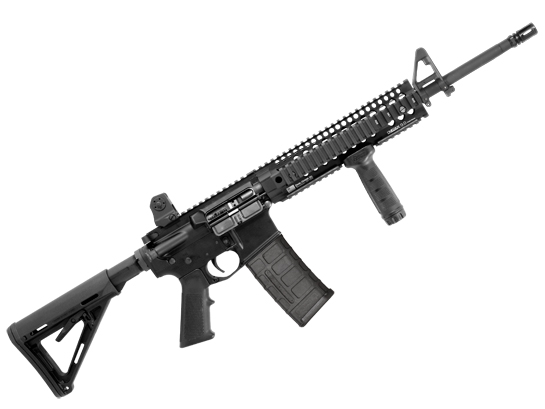

Means matter
The murder and injury of dozens of movie-goers in Aurora, Colorado, is on everyone’s mind, lips, and screens this week. The “debate” about gun control has guttered into life again as a result. The availability of assault weapons, high-capacity magazines, and the ease with which any citizen can outfit themselves as a mass murderer via the internet are being met with Democratic Governor Hickenlooper’s ridiculous refrain: “This guy is going to find something.” And I am filled with a kind of flabbergasted outrage that has been familiar to me for over a decade.
On the morning of January 28, 1997, my father suicided [1]. He used an old hunting rifle we had stored in the basement. He left no note, no sense-making apparatus with which to guide the suicide survivor’s most persistent question, “Why?” In the years since, I have tried to make sense of this act in a variety of ways: aesthetic writing, live performance, and academic research. Some of the most compelling research deals less with “Why?” and more with “How?” What I have discovered is that the means of suicide matter a great deal.
The Harvard School of Public Health’s “Means Matter” program, the single best source for information on the “How?” of suicide, paints a clear picture: many suicide attempts are impulsive choices, not long-term plans and firearms are the single most lethal way to suicide. Firearms are fatally effective in 85% of suicides. Other methods are far less final: suffocation at 69% and falls at 31% are the second and third most deadly means of suicide. States with high household gun ownership rates also have higher rates of suicide completion. Why? Because guns are efficient. They are designed to kill in seconds, at a considerable distance, and with a minimal amount of exertion. At close range they do exceptional amounts of damage. Other methods of suicide are less lethal because they take more time and often more knowledge (calculating truly lethal doses of medication is more complicated than is commonly thought, for example). Often people attempting suicide can change their minds or be discovered by others, and survive. Guns decrease the chances of these kinds of attempt interventions dramatically. The impulsivity of many suicide decisions adds to this. In a 2005 study in the journal Suicide and Life-Threatening Behavior, 71% of people who have attempted suicide reported making the decision in one hour or less. If these people can find a gun in one hour or less, their chances of dying are very, very high.
In other words, if we hadn’t had a gun in our house, my father might be alive.
The response is usually, “Well, if he was really determined, he would have found a way.” However, that assumes that suicide attempts are all determined and pre-planned. The research says they are mostly impulsive, in fact. My history with my father tells me that it was probably an impulsive act, one that he thought about but did not actually plan until that morning, probably over his coffee. More importantly, if my father had selected a less efficient, less available means, he might have survived. It takes time to drive to the bridge or buy a dryer hose. He could have changed his mind. He could have been discovered.
Which brings me back to Governor Hickenlooper’s weak justification for lax gun regulation: James Holmes would have found a way, no matter what. However, it could have taken longer and required more expertise. Along the way, Holmes could have changed his mind or been discovered. Without access to a semi-automatic weapon and/or combat-appropriate magazine, Holmes would have been able to kill and/or injure fewer people. Just as with suicide attempts, more time equals more life. Just imagine what could have happened if his stockpiling had sent up red flags the way buying quantities of sinus medication or fertilizer do.
Means matter, especially in a well-armed society. It is time to stop kidding ourselves about all weapons being created equal. They aren’t; that’s why a soldier’s primary weapon is a gun, and not a saber. That’s why gun advocates want guns. It is time to stop kidding ourselves about the responsibility we bear as a society that creates the almost-perfect conditions for mass murder. Guns actually kill people. It’s what they are designed to do, and they fulfill their purpose with brutal efficiency.
[1] Please note that the language of suicide has changed considerably over the years. In this essay, I employ “suicide” as both verb and noun rather than the more antiquated and accusatory “committed suicide,” which languages suicide as a crime. I also use the term “completed suicide,” as is now standard in the psychological and psychiatric professions. This replaces the older, more ironic term, “successful suicide.”
Thanks for your feedback. If we like what you have to say, it may appear in a future post of reader reactions.

